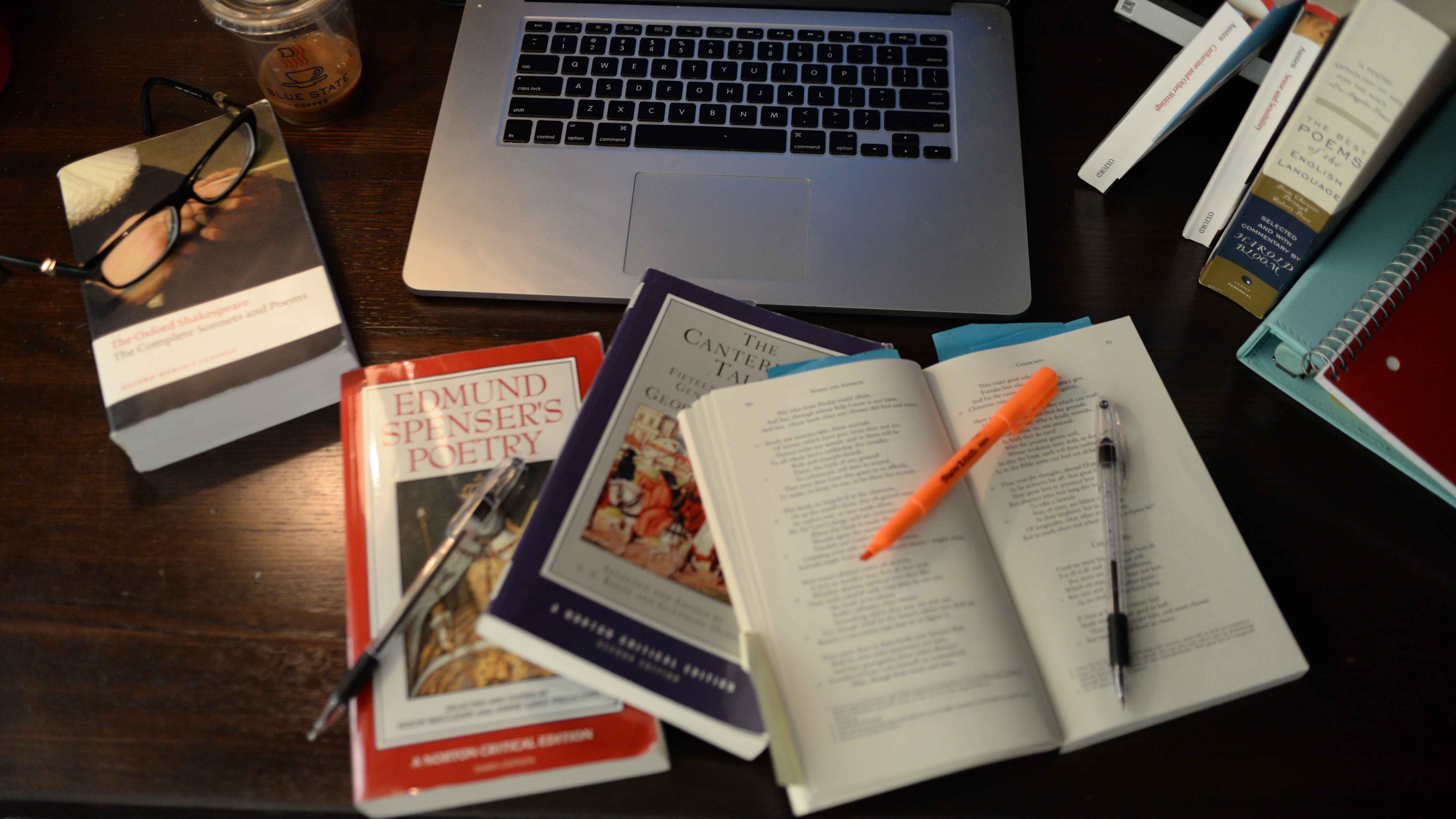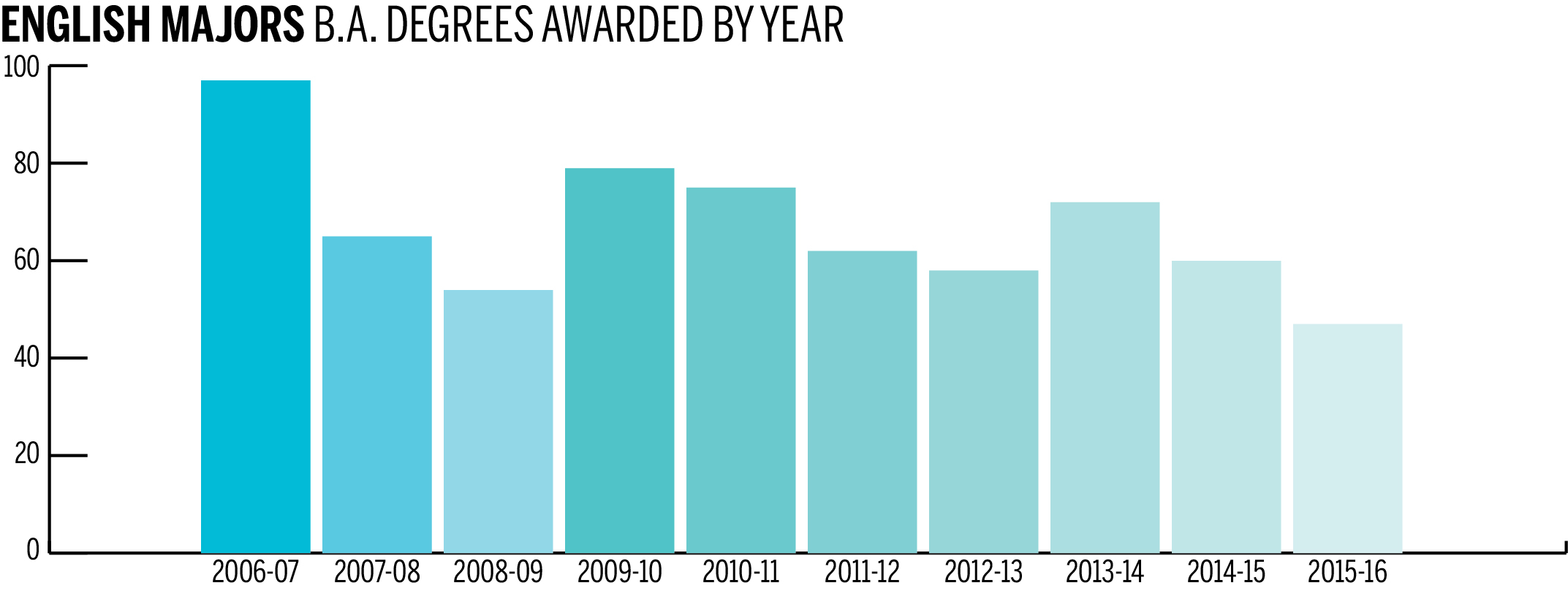
After years of discussions among students and faculty about the diversity of Yale’s English curriculum, English Department faculty members voted last week to broaden the major’s core to represent a greater diversity of authors. The decision has received overwhelming support from students both inside and outside the major, though some students maintain that reading canonical texts is essential to the goals of the English major.
The proposed changes, which have not yet been formally announced or codified, form the latest response to an ongoing debate over the influence of the Western canon in academia. In the future, English majors will have the option to replace either English 125 or 126, the two-part Major English Poets sequence, with English 127, “Readings in American Literature,” or the soon-to-be-created English 128, “World Anglophone Literature.” The changes also amend distributional requirements to encourage the study of modern authors.
Many students saw the proposal as a challenge to the English Department’s long-standing Western emphasis. Of 21 Yale undergraduates, graduate students and alumni interviewed, 19 supported the proposed curriculum change.
Adam D’Sa ’17, an English major, said he was glad to see that the department was “adaptable” and sensitive to the increasing diversity of literature written in English.
Zach Elkind ’17, another English major, found the Major English Poets sequence “unhelpful to the study of other poets by setting up [major English] poets as untouchable.”

The current requirements in poetry and the overall narrow scope of the curriculum ultimately deterred Elaine Lou ’19 from pursuing the major. Lou, a cognitive science and economics double major, was “more interested in the writing portion rather than the literature portion,” and suspected that the changes will encourage more students to major in English, as the curriculum will now represent a greater diversity of interests.
The English Department has already seen a significant decrease in the number of majors over the past decade — 97 students graduated with a degree in English in 2007; the number fell to 47 in 2016.
But students in the humanities and STEM disciplines alike suggested these curriculum adjustments might prompt other departments to broaden their curricula. Kai Nugent ’20, an African American Studies major, said he thought his curriculum’s authors could benefit from “diversification in terms of gender and sexual orientation,” while molecular, cellular and developmental biology major Fran Steele ’19 speculated that the change could even encourage science departments to give their majors greater freedom.
Some students said they viewed the English Department’s actions as evidence that student activism can result in substantial change. Tyler Bleuel ’19, a cognitive science major, said the arguments in favor of the new changes echoed similar sentiments advocating for the renaming of Calhoun College.
“Maybe 70 years ago or however long ago, our campus was a bunch of old white guys, but hey, the world changes, society changes and we should change our curriculum along with that,” Bleuel said.
Still, other students were worried that the call for diversity may come at the expense of academic rigor. While in support of the change, Maks Szwajewski ’20 said he believes “diversity shouldn’t come at the sacrifice of pertinence for any major.”
Furthermore, Sherry Lee ’18, a staff columnist for the News, said that without a knowledge of the Western canon, traditional texts in the English curriculum cannot be fully understood.
“It is worth looking at all of the works that were part of this conversation in addition to the noncanonical works that were part of a different conversation, a different tradition rather than pulling some out and replacing it with another,” Lee said. “I feel like that doesn’t allow you to appreciate either of the works in their own contexts.”
However, some members of the Yale community felt that the change was not sufficient. A graduate student in the History Department, who spoke on the condition of anonymity, thought that students should be “forced to encounter [global] literature.”
He added that the History Department has been discussing how to diversify its curriculum and add more courses outside of the U.S. and Eurocentric areas.
The study of English was first introduced to Yale in the 19th century.







